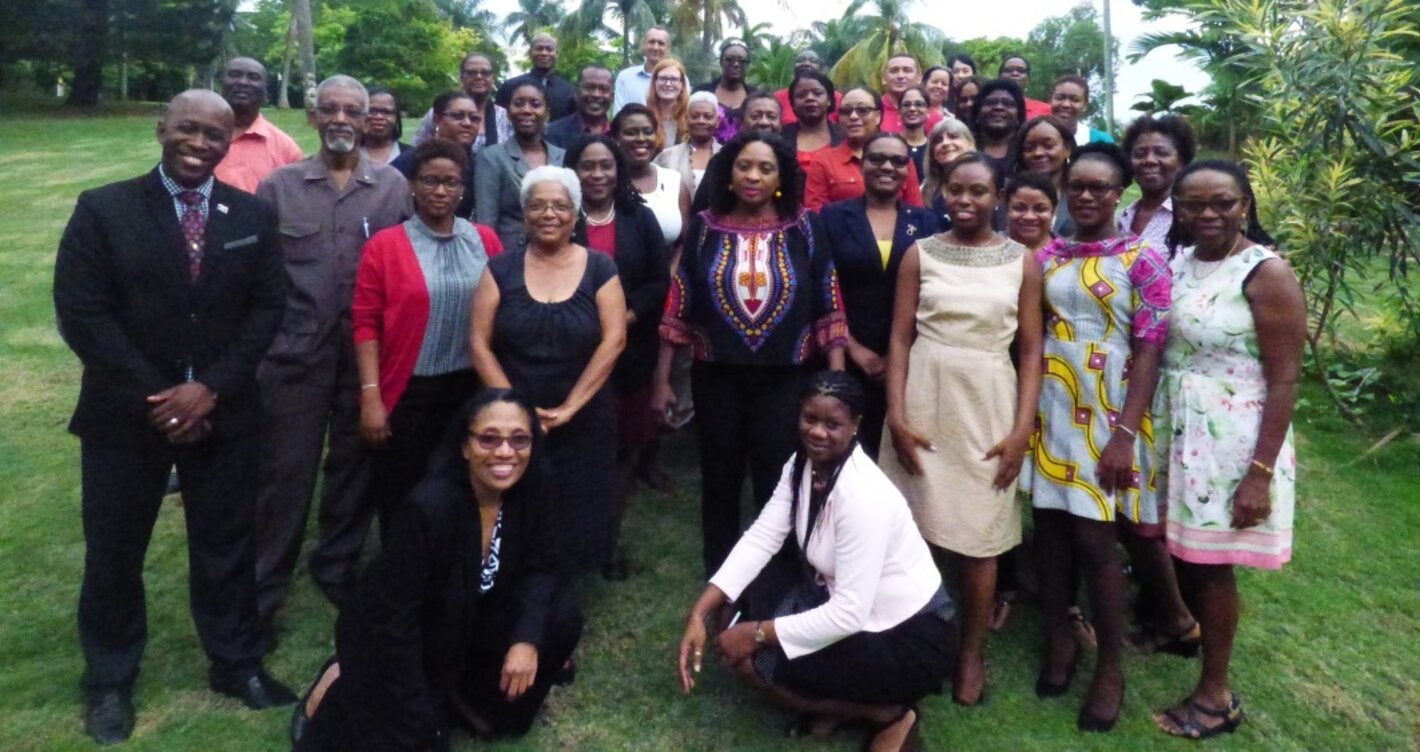
This two-day capacity building and strategic planning workshop (April 25-26) was organized in a collaborative effort between PAHO/WHO's Mental Health and Substance Use Unit, from the Department of Noncommunicable Diseases, and the Healthy Life Course Unit, from the Family, Gender and Life Course Department.
The workshop was attended by 40 participants from seventeen English-speaking Caribbean countries, representing program areas related to mental health and adolescent health. Several focal points from PAHO Country Offices, UNICEF Jamaica and of the Regional Office also participated in the meeting. It was an opportunity to offer an update on global and regional strategies and action plans related to mental health, alcohol and substance use. It also offered the possibility to explore cost-effective interventions such as mental health literacy in schools, as well as effective strategies for suicide prevention.
Dr. Claudina Cayetano, Regional Mental Health Advisor, highlighted adolescents' mental health needs, the huge global burden of disease faced by this population, and how the "Mental health action plan 2015- 2020" applies to adolescent health, not only by providing a comprehensive and integrated approach to mental health care but also by adopting a life course approach and laying emphasis on social health determinants.
Dr. Sonja Caffé, Regional Adolescent Health Advisor, emphasized that the Region is lagging behind in achieving key objectives in the "Adolescent and youth regional strategy and plan of action 2010-2018". The mid-term evaluation of the plan revealed that the objectives to reduce adolescent and youth mortality, unintentional injuries and violence are not on track and may not be achieved. Similar trends were found in the reduction of alcohol and illicit substances.
Representatives from different countries were invited to present their own current situation and experiences in addressing adolescent mental health, and the difficulties faced when trying to introduce effective interventions to address alcohol and psychoactive substance use. There were working group sessions on the challenges and opportunities for strengthening the adolescent mental health national response.



